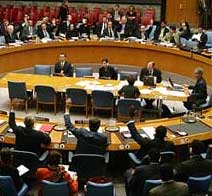This is a memorandum authored by Professor John E. Bonine. The best practices regarding access to justice include removal or modification of two major barriers: (1) restrictions on “standing to sue” and (2) the high costs of going to court. The first of these is a legal barrier. It determines which persons or organizations are allowed to file lawsuits in the courts against public authorities (governmental bodies). The second barrier can be either a legal barrier or a practical one. Lawyers and lawsuits can be expensive. Citizens and their organizations usually lack the resources to bring such cases to court.
Barriers to access to justice can be imposed by either national legislation (or in just one country by a national constitution) or court interpretations and practices. They can be overcome by national constitutions, legislation, and court interpretations.
Standing to sue
In countries with the most restrictive policies on “standing to sue,” a person cannot file a lawsuit unless he or she can demonstrate that a “legal interest” or “legal right” will be affected by the action of a public authority. This is sometimes phrased as requiring that a person show a “direct and individual concern,” that he or she is part of the public that is legally “concerned,” or even that he or she must be able to prove an “injury” that is satisfactory to the courts. All of these formulations of standing requirements impose definite barriers to access to justice.
In many countries, which have better practices, the “standing to sue” requirement has been softened by requiring only that a “sufficient interest” be shown. A similar softening occurs in countries that allow any person to start a court case to defend a “diffuse interest” or the “public interest.” These types of progress have taken place in countries in Latin America, Asia, Africa, and Europe. In several countries, particularly in Europe and nearby regions, registered nongovernmental organizations (NGOs) with a concern for protection of the environment are granted standing to sue without need to show either a legal or “sufficient” interest.
The best practice, however, is to abolish entirely the requirement for “standing to sue.” In such countries or jurisdictions, the courts do not look at who is bringing a lawsuit, but only at whether a public authority has violated its constitutional or statutory duties. This “open standing” (or actio popularis) can be granted by legislation or a national constitution. It can be granted explicitly or through judicial interpretation in court decisions. Such open standing has been recognized in parts of Asia, the Americas, and Europe.
Economic barriers
The most obvious economic or financial barriers to access to justice involve the high cost of lawyers and the high costs imposed by courts as a condition of filing lawsuits. These costs obviously consist of paying a person’s own lawyer. But in some countries a party who loses a lawsuit must also pay the costs of the opponent’s lawyers and experts, which can dramatically increase costs and raise barriers even higher.
With regard to a person or NGO having to pay lawyers to bring a case, the best practice is for government programs to provide steady funding for individuals or NGOs that are dedicated to the protection of the environment. Funding from private charitable foundations is crucial as bridge funding, until such time as governments recognize the value of public interest litigation and their obligation to support it. Relying on the voluntary efforts of private lawyers is necessary in many countries at the present time, but it is sporadic and uncertain. This results in unequal justice because business interests have the resources to pay for their own lawyers and the pressure of threatened lawsuits coming from only one side can lead government officials to lean in their direction.
With regard to being ordered by a court to pay the costs of the lawyers and experts on the other side of a case, when the individual or NGO brings a case but is not successful, countries that have such a “loser-pays’ policy have erected a particularly high barrier to justice. The best practice is to eliminate such a policy entirely. This can occur through either legislation or court decisions rejecting this policy. Such court decisions can be based on constitutional, human rights, or pragmatic grounds. A good practice is at least to create an exception for public interest cases, or for all cases in which a public authority is on the other side of the case.
In the process of abolishing the loser-pays requirement as it is applied against individuals and NGOs, some countries provide for courts to award costs to individuals and NGOs when they win. Such “one-way attorney costs” is a best practice, giving citizen enforcers of environmental law the best of both worlds.

